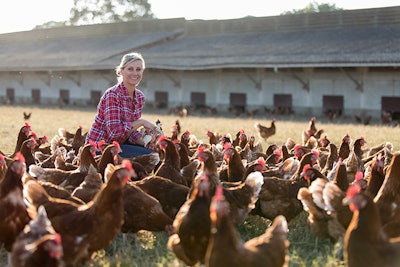
Conscious capitalism is a philosophy rooted in the concept that, when practiced consciously, business elevates humanity.
“Capitalism is the only system that creates prosperity and creates progress. But it's hated and part of that is because the narrative on business is so negative. It's just about money. It's greedy. It's selfish. It's exploitative,” John Mackey explained during a Compass Coffee Talk on the subject.
“I want to change that narrative. I want us to think about business differently. I want the practitioners of business to lead differently.”
Mackey is the CEO and Co-founder of Whole Foods Market and author of “Conscious Capitalism: Liberating the Heroic Spirit of Business” and “Conscious Leadership: Elevating Humanity Through Business.”
Conscious capitalism is rooted in four tenets:
- Higher purpose: Businesses should exist for reasons beyond making a profit.
- Stakeholder orientation: Conscious businesses value and care for all stakeholders involved, including customers, employees, investors, communities, suppliers and the environment.
- Conscious leadership: Conscious leaders focus on “we,” rather than “me.”
- Conscious culture: The culture of a business is its heartbeat. Without a healthy one, businesses ultimately fail.
Austin, Texas-based Vital Farms, one of the largest suppliers of pasture-raised eggs in the U.S., has embraced the conscious capitalism model.
Circle of value creation
Businesses that follow the conscious capitalism model focus on meeting stakeholder needs, rather than just on the bottom line.
As an example, Mackey discussed the hiring practices at Whole Foods.
“At Whole Foods, we try to hire the best people we can find. Management’s job is to make sure employees are well trained, so they can serve our customers well, and then their job is to try to make employees happy, because we know if our team members are happy, they serve the customers better,” he said.
“If the customers are happy, then they're going to say good things about our company and become repeat regular customers. And as a result, the investors will prosper, and the suppliers will prosper as well because their sales will go up. There's this virtuous circle of stakeholder value creation all the way through the through the interdependent circle that exists there.”
Like what you just read? Sign up now for free to receive the Poultry Future Newsletter.


















